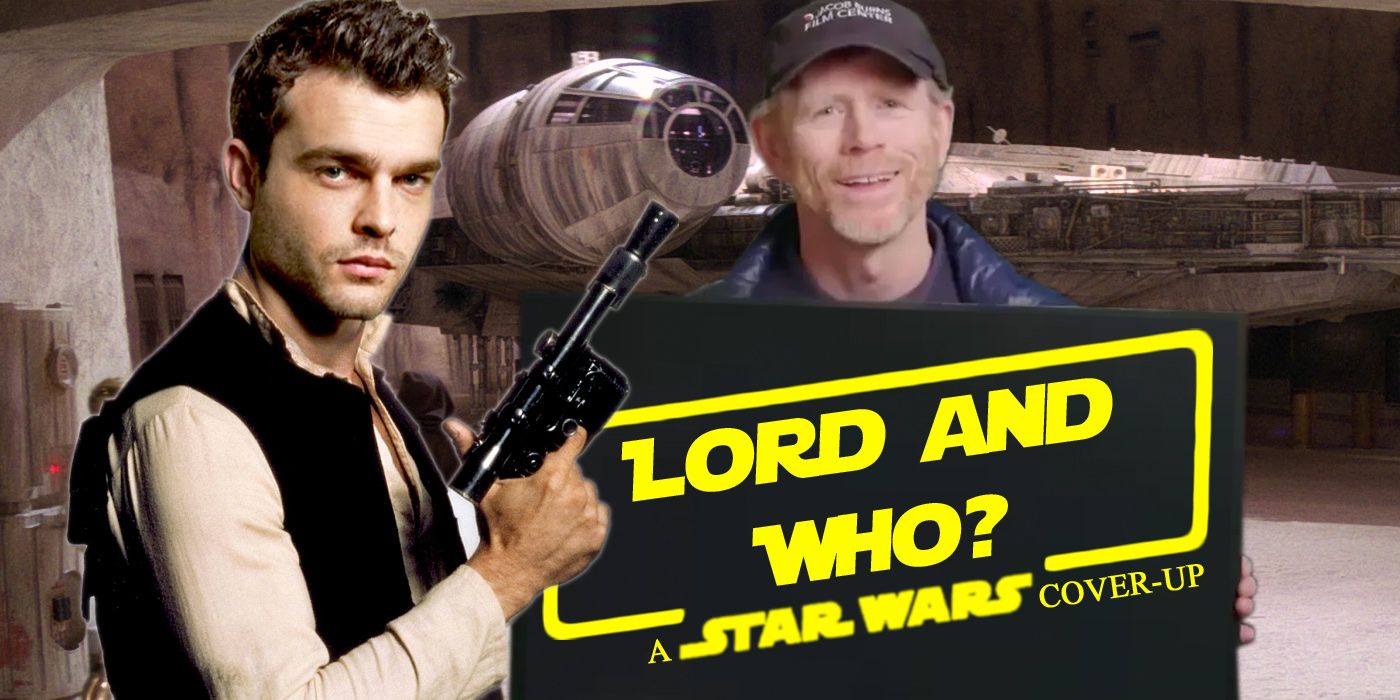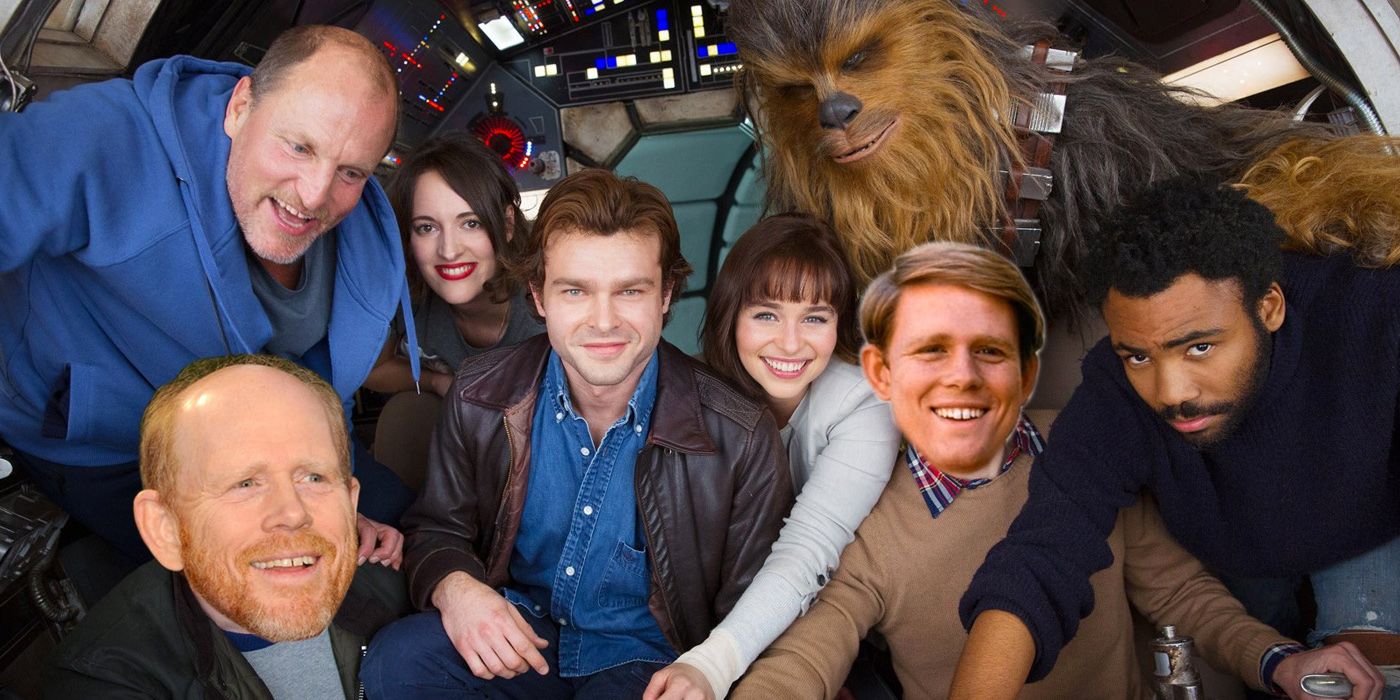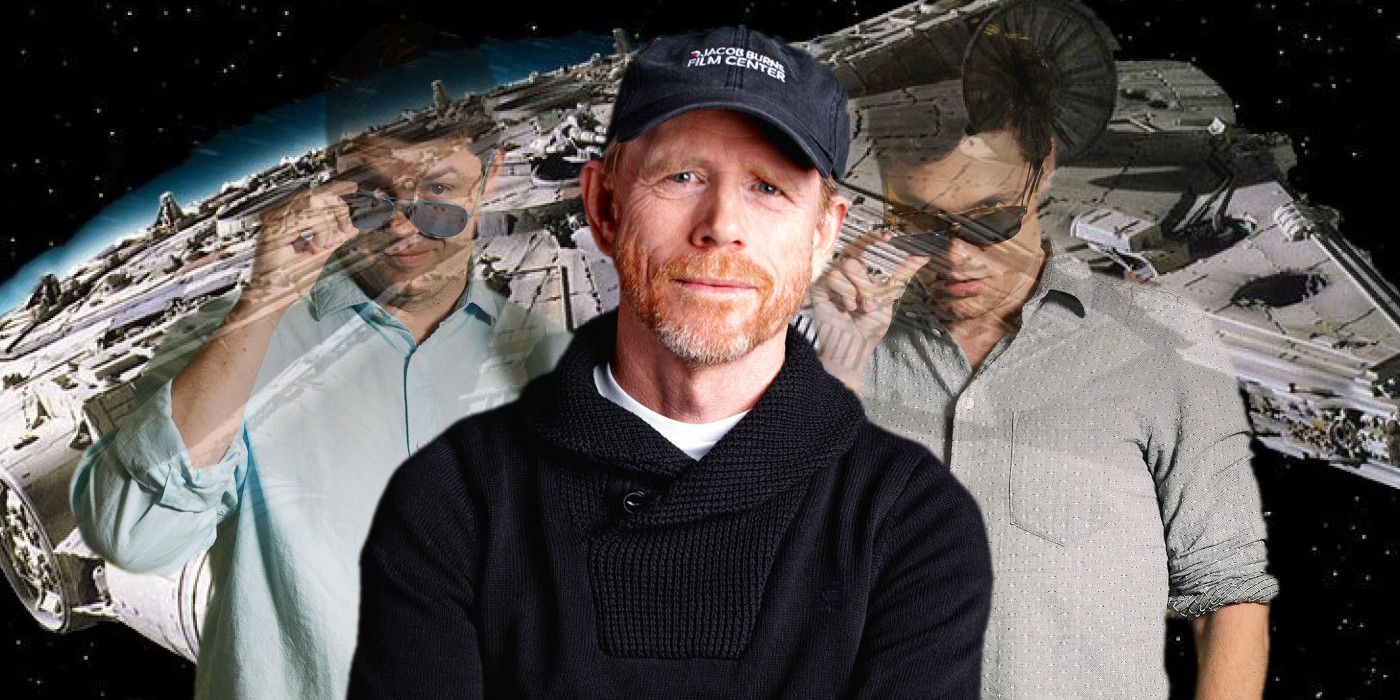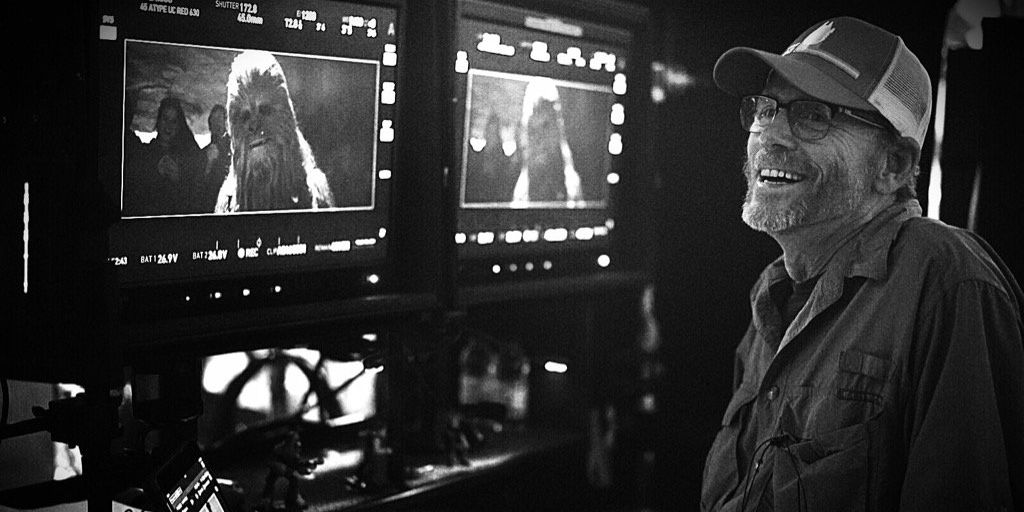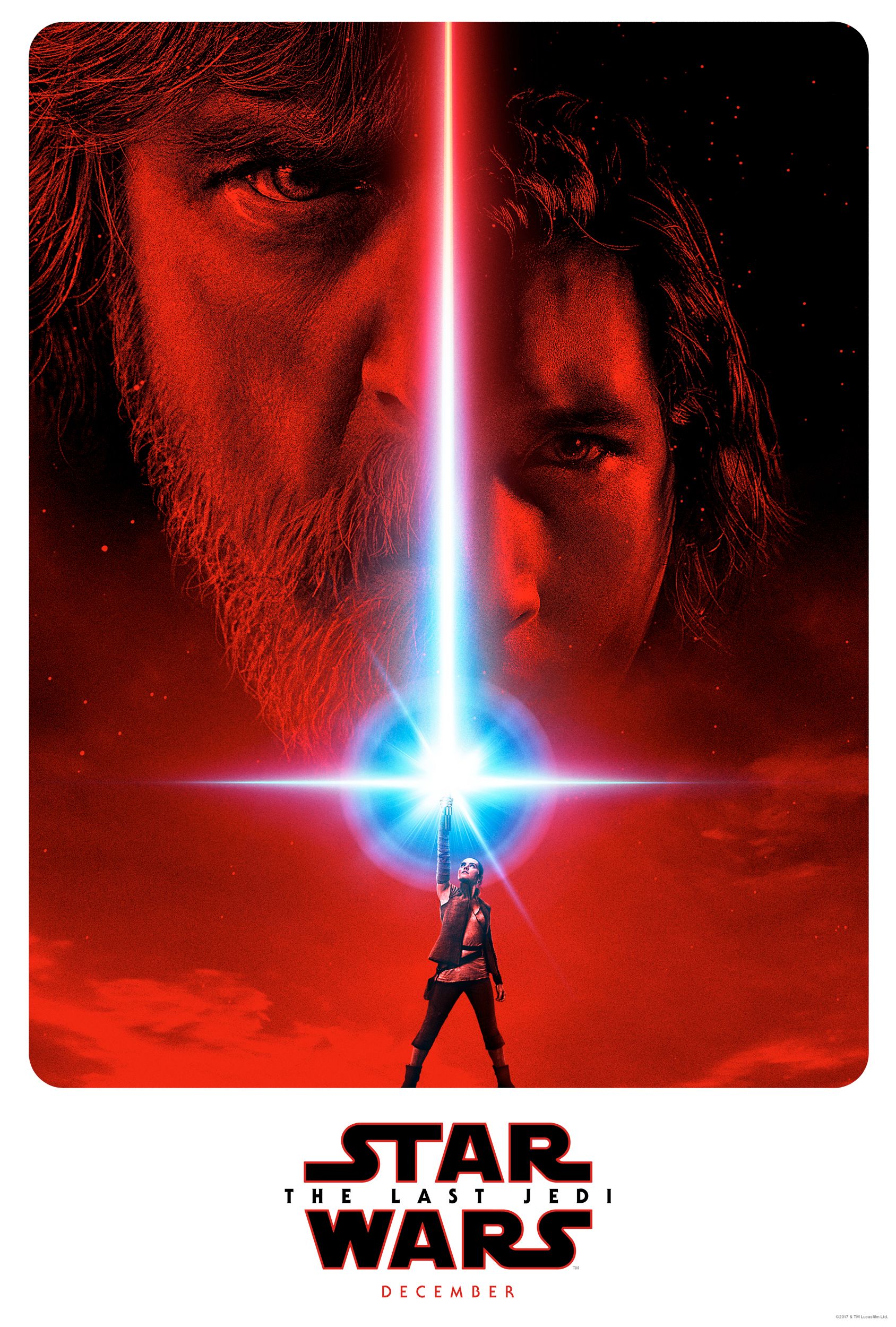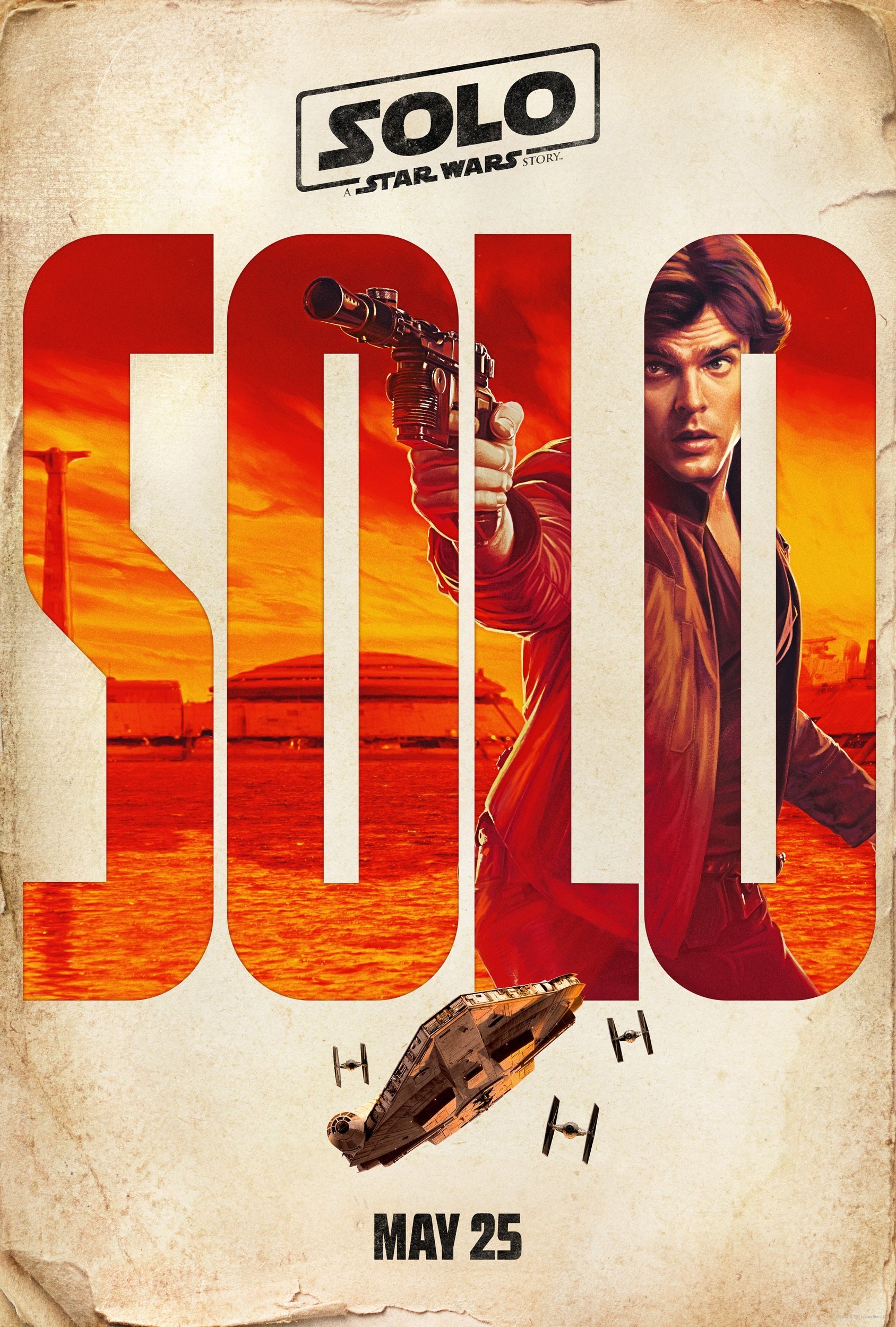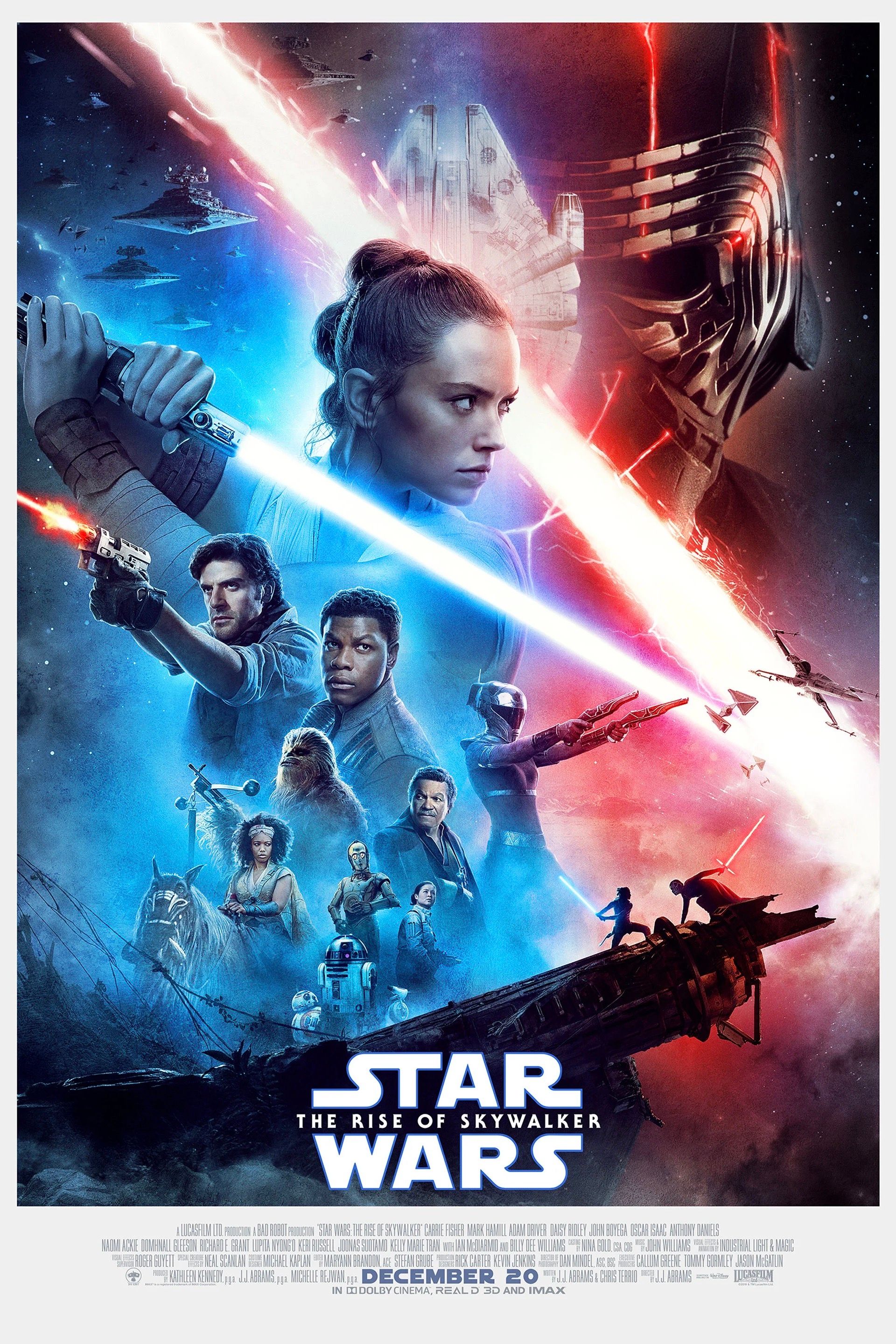Solo: A Star Wars Story has finally wrapped production. But does it have enough time to make its May 25, 2018 release - a date that's a little over seven months away?
If you'd only discovered the Han Solo Star Wars spinoff today, you'd be forgiven for thinking that the most controversial part of its production was the title. That predictable name was finally confirmed at the end of principal photography last week and the reaction was roundly negative, with fans quickly suggesting their own, edgier title. We're not going to defend that here (although most of the complaints seems to come from the fact something so plain was kept a secret, not that it's actually underwhelming) but it is crazy that there's such a backlash when Solo is the least objectionable development for the movie in months.
Related: Solo: A Star Wars Story Is Not A Bad Title
Maybe it's because "Solo" is quantifiable - we can all spot how light it is. Everything else about the film? Not so much. Having two beloved directors fired weeks before the end of production (after heavy rumors of a similar shift on the previous Anthology film), then replaced for a shooting extension that almost doubles filming time and recasts key roles is just too massive to comprehend. Very little in modern Hollywood is unprecedented, but this really was; stories of directors leaving projects unamicably during pre-production are so common we have reams of intriguing "what could have been?" films, but once the cameras are rolling you presume its locked. It was a shock to the system, a sign that the director-focused facade that the producer-led industry often tries to trumpet really is just an illusion and, should the studio heads wish, they can cast you aside with nary a whimper.
Why Aren't We Talking More About Solo's Production Issues?
What's been so unexpected, though, is the audience reaction. Everyone was shocked by the firing of Phil Lord and Chris Miller in June (despite rumblings of disagreements, nothing this extreme had been mooted) but in the months since the conversation has abated. The story's deepened, with a major rift between the directors and producer Kathleen Kennedy painting a production in peril, then our research revealing the entire firing was a last minute final resort by Lucasfilm to keep creative control, but the discussion stopped pretty much when Ron Howard came on board.
Compare it to Justice League, where what can only be described as less work from Joss Whedon - he reshot around three weeks on Zack Snyder's film only after the original director stepped down for wholly understandable personal reasons (rewrites for these scenes were written before this and under Snyder's approval) - has been a major controversy, one that continues to unravel in pockets of the DC fanbase. What's going on there is lesser than what's on Solo, but the discussion doesn't reflect that.
Read More: Justice League Reshoots: What Was (& Wasn't) Changed
A big part of it is PR. That the DCEU doesn't have a perfect lock on its image is well documented, whereas Lucasfilm has a very tight grip on what gets out and what doesn't, and it's helped by respectful fans who diligently keep spoilers under wraps (periodic reminder the entire plot of Star Wars: The Force Awakens leaked in May 2015). Directors, producers, writers and other higher-ups are always on hand to tactfully respond to any negative rumors, and for Solo, Ron Howard's been tweeting like a bot with images from the set. These are particularly powerful as they don't just exemplify enthusiasm but also show the scale of the movie's world and tease major fan favorites; they distract from the conflict and promote the product.
The problem is that for Solo, it feels like they've gone too far. If you only get your information from direct Lucasfilm sources, Lord and Miller weren't fired or even left; they were never there in the first place. It's it's Ron Howard's film and it always was. There's no mention of conflict outside of the official statement, with The Star Wars Show blanketly avoiding any controversy and the official site having buried anything pre-departure. Obviously, they want to be focused, but there's a disingenuity to it here; while it's obviously just entertainment, the whole presentation is like a totalitarian regime: Lord and Miller are Snowball, Lucasfilm Napoleon.
And, ultimately, they can't avoid that Howard by all measures reshot around 80% of the film, meaning the majority of Lord and Miller's work will remain unseen. That's a big change up and, putting associated existential panic aside, we need to address how serious that really is.
Will Solo: A Star Wars Story Be Good?
Disney-era Lucasfilm has form. Specific opinion on both varies, but by all metrics Star Wars: The Force Awakens and Rogue One: A Star Wars Story are mega-successes, reigniting passion for a franchise presumed dead post-prequels, while The Last Jedi looks like it could be best of the lot - that's a track record that makes you want to trust them. Competency is even true in light of production issues; Rogue One had extensive reshoots and heavy ghost directing from Tony Gilroy, yet any evidence of that in the film itself comes from prior knowledge. Add that Howard is incredibly proven in most cinematic arenas - had he not come onboard under a cloud of controversy, that a Lucas contemporary who broke out in American Graffiti alongside Harrison Ford was doing Solo would be the ultimate plus point - really rounds it off. The Force is with Lucasfilm.
But there's no avoiding that the studio created the problem in the first place. Kasdan was the one who pushed for Lord and Miller, yet it was reportedly him objecting to their free-wheeling, improvisational style in regards to his carefully crafted script (which also doubles as a career-maker for son Jon) that first started the rift. Kathleen Kennedy likewise hired a duo with a very specific approach and then fired them for executing that. We don't know what Lord and Miller's pitch or the studio's remit was, but even if the directors did turn Han into Ace Ventura, it's hard to not blame the studio, especially given this exact problem has ocurred on Rogue One and Episode IX (and Boba Fett, a Josh Trank hiccup whose lack of presence in the discussion only highlights how good the PR is).
Read More: Star Wars' Director Problems Are All Lucasfilm's Fault
Of course, that's all academic if the film's good. And that's where the issue with the title really lies. It was evidently held back to announce the end of production, which was originally July but obviously changed. And because the film is still doggedly keeping its May date, that's a tight turnaround. For comparison, The Last Jedi was locked by the end of September 2017, a good three months prior to its release, and by the time Godzilla 2, which also recently wrapped, is released, Solo will already be available on home video. There was an early wrap party and we're unlikely to get a trailer this year, meaning marketing doesn't start properly until five months are left. You don't need C-3PO to tell you that Han's up against it.
Is Lucasfilm Rushing Han Solo?
Can Solo make it? Seven months from the final call of "cut" to final cut?
Well, the oft-cited seven months post-production assumes that it only started once cameras stopped rolling, something we know not to be true. VFX teams, especially those based in-house like ILM, will begin work on a film before the actors, and while Lord and Miller's footage won't be used much, it'll be easy to adapt the visual effects to Howard's vision - it's a case of reframing rather than remapping. So, CGI-wise, Solo is pretty much where it always was (especially as a fundamental CGI character played by Michael K. Williams has been replaced by the very human Paul Bettany).
When it comes to the actual editing, the question is trickier, but from select tweets it appears that Howard's been hard at work cutting the film during the production. We don't know (tight-lipped Lucasfilm and all that) but there's definitely a thrust and understanding of what needs to be done to hit that date.
Although that still begs the question of why they've set the hard target of May: why not move to the now-traditional December? The most popular defence is that May 25 is the anniversary of the original movie's release, but 41st is hardly a landmark and similar concerns haven't affected the shifts for any of the Saga films. It could be part of that PR, a show of faith in the project that Lord and Miller's departure doesn't change anything, although the truth may be more business. Solo isn't just a movie, with influence on many moving parts across the Star Wars brand - there's merchandise, books, associated content for games, and more - that to shift greatly alters the bigger Lucasfilm (and even more gargantuan Disney) picture. When massive multimedia releases move, it's usually well over a year in advance (see: Batman v Superman: Dawn of Justice moving twice).
-
Solo: A Star Wars Story could all work out. In fact, it probably will. But the evident prior success of those involved shouldn't be enough to simply bow to the corporate strategy and turn a blind eye to what is one of the most turbulent productions of all time.
All of this said, the truth may be something else. From its first rumblings back in 2013, the Han Solo prequel has been a suspect proposition for many; needless and greedy. The lack of discussion over Solo's resulting issues would then be less disregard and more extended disinterest. If that's the case, the disruption has only really increased awareness of the project and galvanized people in a different way - in Lucasfilm we trust. We should be worried, but don't be surprised if this shocking narrative actually makes people ultimately more open to Young Han.

